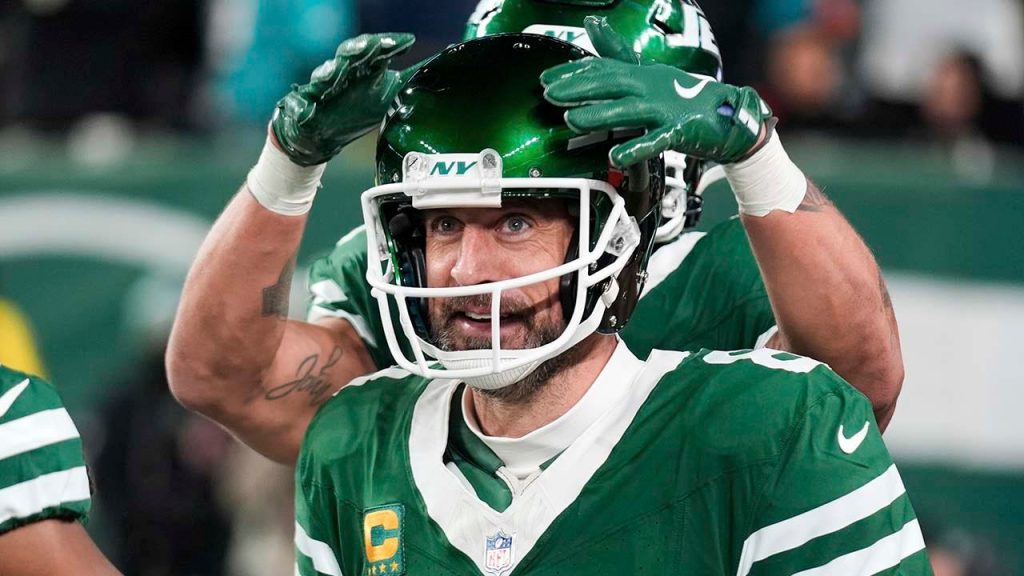Aaron Rodgers, the veteran quarterback, delivered a resounding performance in what could potentially be his final NFL game, leading the New York Jets to a convincing 32-20 victory over the Miami Dolphins, effectively dashing their playoff aspirations. The 41-year-old Rodgers showcased his enduring talent by throwing four touchdown passes, a feat that further solidified his legacy as one of the league’s premier passers. This performance also marked a significant milestone in Rodgers’ career, as he became only the fifth player in NFL history to reach the impressive 500-touchdown pass mark. Despite the celebratory atmosphere surrounding his achievement, the undercurrent of uncertainty regarding Rodgers’ future continued to permeate the post-game discussions.
Rodgers’ post-game comments reflected a thoughtful introspection regarding his career trajectory. He acknowledged the need for deliberate consideration of his future, both within the game of football and specifically with the New York Jets. Rodgers expressed his intention to engage in discussions with team owners Woody and Christopher Johnson, recognizing their ultimate authority in determining the direction of the franchise. While emphasizing his desire to continue playing, he also displayed a mature acceptance of the possibility that the Jets might choose to move forward without him. He stated that his primary focus was to thoroughly evaluate his options and make an informed decision that aligns with his personal and professional goals.
The Jets’ acquisition of Rodgers from the Green Bay Packers prior to the 2023 season was heralded as a potential turning point for the franchise, a move that carried the promise of revitalizing their offense and propelling them back into contention. However, the season quickly unravelled as Rodgers suffered a season-ending Achilles injury in Week 1, limiting his on-field contribution to a mere four snaps. This unfortunate turn of events cast a long shadow over the Jets’ season, derailing their hopes of a resurgence.
In the absence of their star quarterback, the Jets struggled to find their footing. The team was plagued by internal turmoil and a perceived lack of effort, creating a negative narrative that enveloped the organization. The mounting pressure and disappointing results ultimately led to the mid-season dismissals of both head coach Robert Saleh and general manager Joe Douglas, reflecting the instability and dysfunction that had permeated the team.
Despite the challenging circumstances, Rodgers managed to compile respectable statistics in the games he did play. He threw for 3,897 yards and 28 touchdowns, demonstrating his enduring ability to produce at a high level. However, his individual performance was overshadowed by the team’s overall struggles, as the Jets finished the season with a disappointing 5-12 record. This outcome underscored the significant challenges facing the franchise, regardless of Rodgers’ individual brilliance.
The future of Aaron Rodgers remains an open question, one that will likely have a significant impact on the landscape of the NFL. His decision, whether to retire or continue playing, will undoubtedly shape the narratives surrounding both his personal legacy and the future of the teams involved. As the offseason unfolds, the football world awaits his decision with bated breath, recognizing the profound implications it holds for the league.

